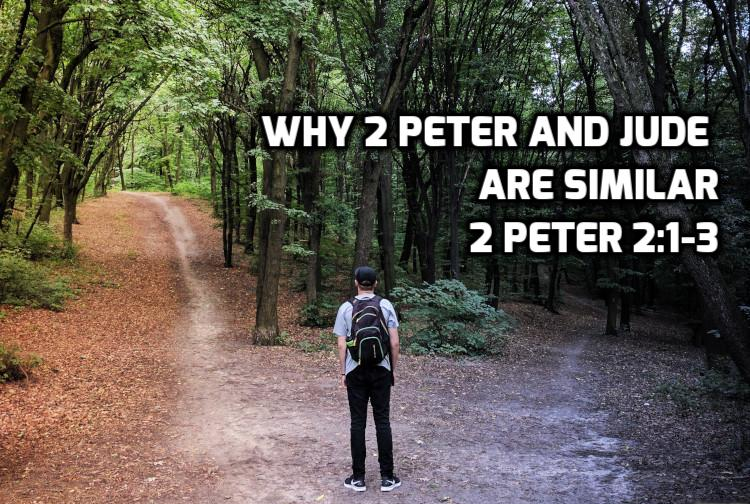Peter (aka Simon Peter, Simon, Cephas) was one of the 12 apostles of Jesus Christ and the author of 2 letter in the New Testament.
Jude Bible Study Resources
Study questions, maps, charts, key words, history, background, outlines, and links to help you study the epistle of Jude.
14 2 Peter 3:10-18 What the Second Coming means for today
Peter concludes his second letter by discussing the end of the age, the return of Christ and what that tells us about how we should live now.
13 2 Peter 3:8-9 Free will and God’s sovereignty
2 Peter 3:8-9 features in the debate over God’s sovereignty and human free will. While this verse does not settle the debate, understanding what Peter means in context teaches us a lot about both good Bible study and the issues in the debate.
12 2 Peter 3:1-7 The Point of it all
Peter argues that more than anything else we need to find life through forgiveness and to find fulfillment through righteousness. It is this hope that he wants us to remember such that we let it change our lives today.
11 2 Peter 2:17-22 Freedom, slavery and sin
Peter warns that the false teachers are like springs without water, promising freedom but delivering destruction and he warns his readers not be deceived by their empty promises.
10 2 Peter 2:13-16 Balaam and the false teachers
Continuing his warnings about the false teachers, Peter uses of Balaam from Numbers 22-24. Like Balaam, the false teachers are profiting from causing the people of God to stumble.
09 2 Peter 2:10-12 Who are the glorious ones and why are they reviled?
In the third major interpretative challenge of 2 Peter 2, we tackle the questions of who are the glorious ones, why would they be reviled and what does Peter want us to learn from this example?
08 2 Peter 2:5-10 The Certainty of Judgment
The coming judgment of God is not a popular topic today. We prefer to emphasize God’s love instead. Yet Peter thought judgment was important enough to include in his final letter, so that would remember it long after he is gone.
07 2 Peter 2:4 Does Peter quote Enoch?
Does Peter quote Enoch? Why would an apostle quote a non-biblical source? Find out in this episode of Wednesday in the Word.
06 2 Peter 2:1-3 Why 2 Peter 2 and Jude are similar
2 Peter 2 and the Epistle of Jude presents the same ideas in the same order and often use the same words. Did Peter copy from Jude? Did Jude copy from Peter? Or did they both copy from someone else? What’s going on?
05 2 Peter 1:12-21 The Prophetic Word
Peter asserts the gospel is not a clever philosophy but divine revelation from God. Which presents us with a choice about how we understand the Bible.












